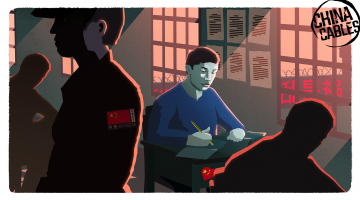Juliette Garside, United Kingdom, is deputy business editor at The Guardian, responsible for news and financial investigations. She initiated the Russian Asset Tracker project, an international collaboration involving ICIJ members, in response to the war in Ukraine.
Juliette was previously a member of The Guardian's investigations team, specializing in tax and offshore investigations. In 2016, her scoop on the financial affairs of David Cameron's family forced him to become the first British prime minister to publish his tax returns. The story was part of The Guardian's coverage of the Panama Papers, the ICIJ-led project which won a Pulitzer Prize for explanatory reporting, and 2016 investigation of the year (and investigation of the decade) at the British Journalism Awards. She coordinated a team of nine reporters who worked for seven months to produce dozens of stories from London, New York and Sydney. As a result, 22 people were put under civil and criminal investigation in the UK.
In 2015, she was part of The Guardian team which worked on ICIJ's Swiss Leaks exposé into the private banking arm of HSBC. Their coverage led to two parliamentary inquiries and reform of Britain's "non-dom" tax loophole. Swiss Leaks won investigation of the year at the 2015 British Journalism Awards. Her work on Luanda Leaks was recognized in 2020 as the British Journalism Awards' anti-corruption investigation of the year.
Juliette jointly led a series on the assassination of the Maltese journalist Daphne Caruana Galizia, winning the European Press Prize in 2019. She is a member of the UK anti-SLAPP coalition, which campaigns for reforms to protect journalists from abusive legal threats.
She joined The Guardian in 2011, having previously worked at The Daily Telegraph, the London Evening Standard and the Sunday Herald in Glasgow.









